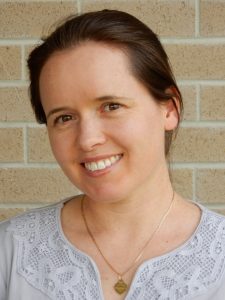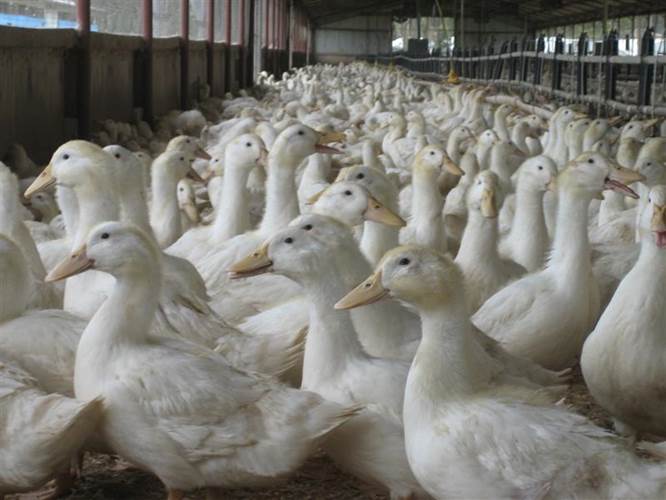My gratitude is expressed towards Poultry Hub Australia for supporting my visit to the Luv-a-Duck farm in June 2019. I found the experience highly informative and I am looking forward to exploring the options for conducting duck research within Australia. My main contact at Luv-a-Duck farms was Andrew McBride who was most welcoming and very generous with his time during my visit. I was also able to talk with the hatchery manager, the developer farm manager, and two contract grower farm managers. Similar comments were made by all of these individuals of how hard it is to find and keep good staff, a theme that seems common across all poultry industries within Australia.
During my time at Luv-a-Duck, I saw most stages of their production chain. I spent the first day at the only developer farm, the farm for raising the males and females that would go on to become the breeder birds. I assisted with weight grading and feeding the ducks and was able to gain insight into the day-to-day management of these birds. I was surprised to learn that it is necessary to top the litter up daily, but could rapidly see the need for this. My first impressions were that the stocking densities in the sheds were low and the birds had plenty of access to fresh air and daylight. There are distinct differences between males and females, with males being bigger and a lot quieter than the females.

I then received a tour of the hatchery and assisted with the hatching/checking of the ducklings. The volume of birds produced is far lower than that of the chicken industry, but yet a lot more than I expected. I was surprised to learn how robust ducks are and that they are not vaccinated the way laying hens are. No vaccinations were provided at the hatchery that supplies the grower farms. All duck eggs are washed because most eggs are slightly dirty and it is recommended to remove the cuticle for optimal incubation. I was able to observe the egg washing process at the hatchery.
I then visited one of the breeder farms that supply the eggs to the grower hatchery. All eggs are collected manually but they are looking into the possibility of nest boxes that would allow the use of egg belts which would improve both worker satisfaction, and egg cleanliness. The females do have access to nest boxes and they are currently testing how raised nest boxes work.
Finally, I spent some time on two different grower farms. These are the birds that are grown for eating, so similar to chicken broilers, they are ready for processing at around 38 days of age. Overall, I learnt a vast amount of information during my time at Luv-a-Duck and now feel greatly informed about the running of the duck industry and look forward to being able to help improve it.
Dr Dana Campbell


